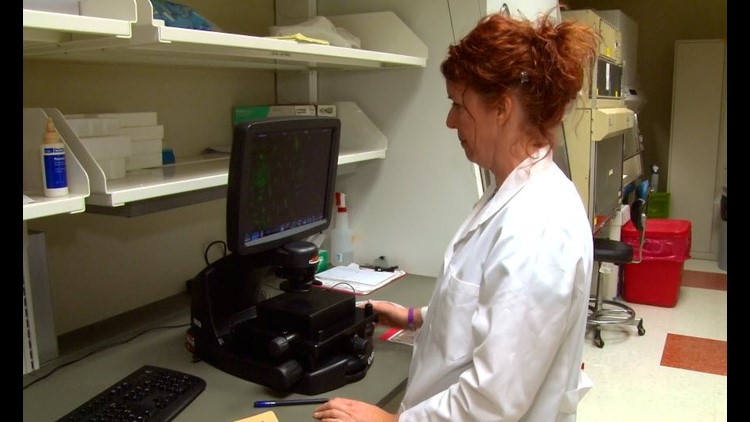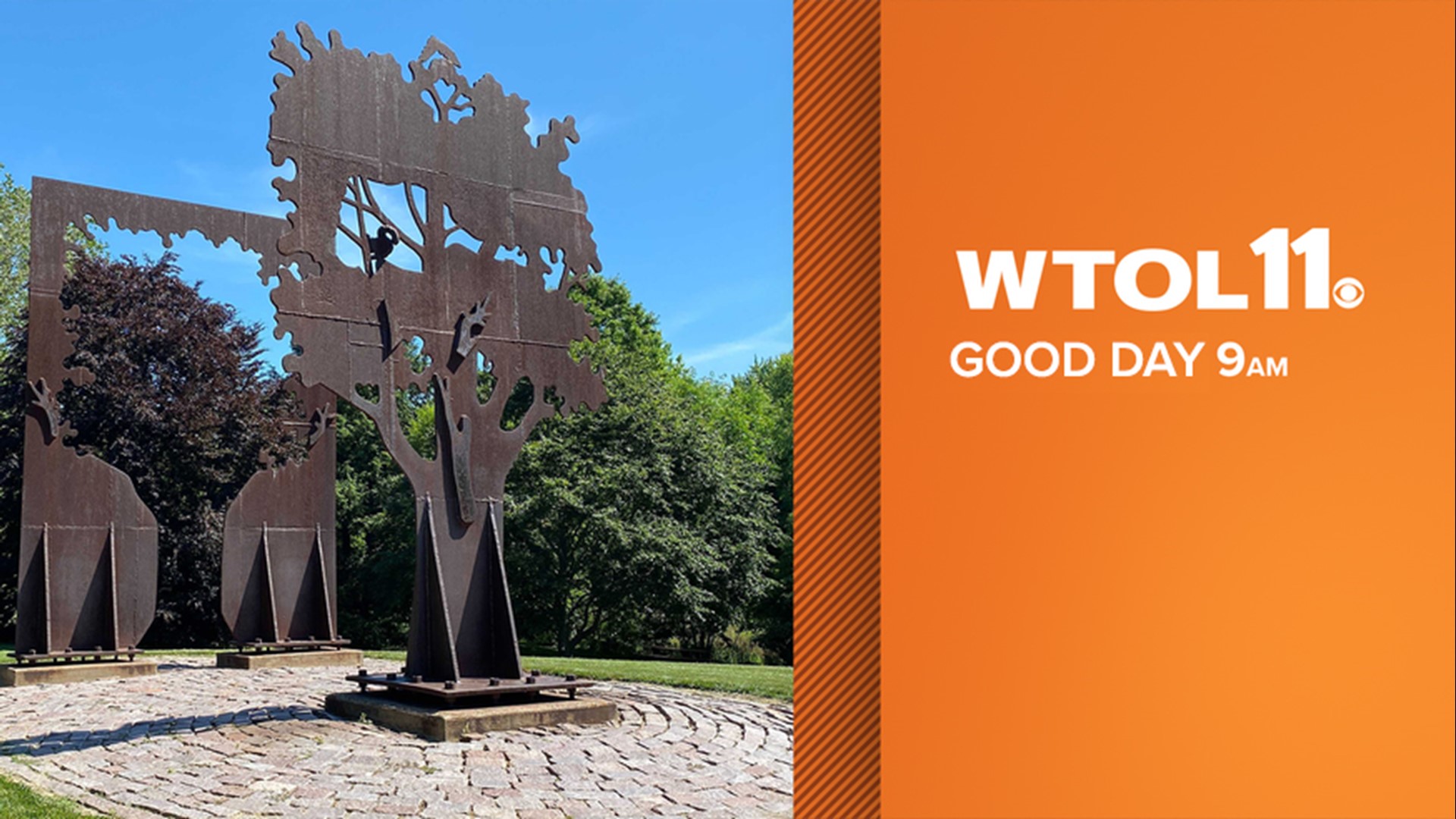TOLEDO, OH (WTOL) - One professor at the University of Toledo's Health and Science Campus is using a personal connection to make big strides with brain cancer research.
Dr. Kathryn Eisenmann, UT assistant professor of biochemistry and cancer biology, has been working since 2011 on a drug that helps prevent the spread of glioblastoma, a very lethal form of brain cancer, and one that needs attention.
"There's really no effective or durable treatments whatsoever for glioblastoma. It's a disease that's really wanting for effective therapies so that's what brought me into this field," said Eisenmann.
Eisenmann says this cancer usually comes with about 15 months left to live because it is a very aggressive cancer that moves rapidly throughout the brain. But it wasn't just her interest in how cancer cells move that started this project.
"Glioblastoma took a little bit of a turn as there were a few personal connections. Two friends and family that had had diagnoses, and so I was naturally drawn towards there," she said.
She took her interest and worked with UT graduate student Jessica Arden and Van Andel Research Institute Professor Arthur Alberts to research, test and develop drugs, which work a very specific way.
"These drugs do not kill the cancer cells, they block their ability to move from point A to point B. And that's a class of drugs that we desperately need in glioblastoma therapy," she said.
She says the way the drug works is once it's administered it will basically take the cells and stop them from moving, which keeps them in an isolated area. This collection of cancer cells then allows doctors to target and treat those cells more effectively.
Eisenmann says this drug would be used alongside with other treatments like chemo, radiation and surgery. And their strides have reached people across the globe.
"We've had a lot of feedback with patients and clinicians from across the world, including places like Saudi Arabia, Iran, Pakistan and India. So what that tells me is there's a desperate need for additional therapies," she said.
She says their work is far from over and the next steps is to start testing on fish and then mammals like mice.
To continue research, however, Eisenmann says they need additional funding, which is why she is working on applying for a gr ant this week and encouraging people to go to their site if they're interested in giving a donation.



